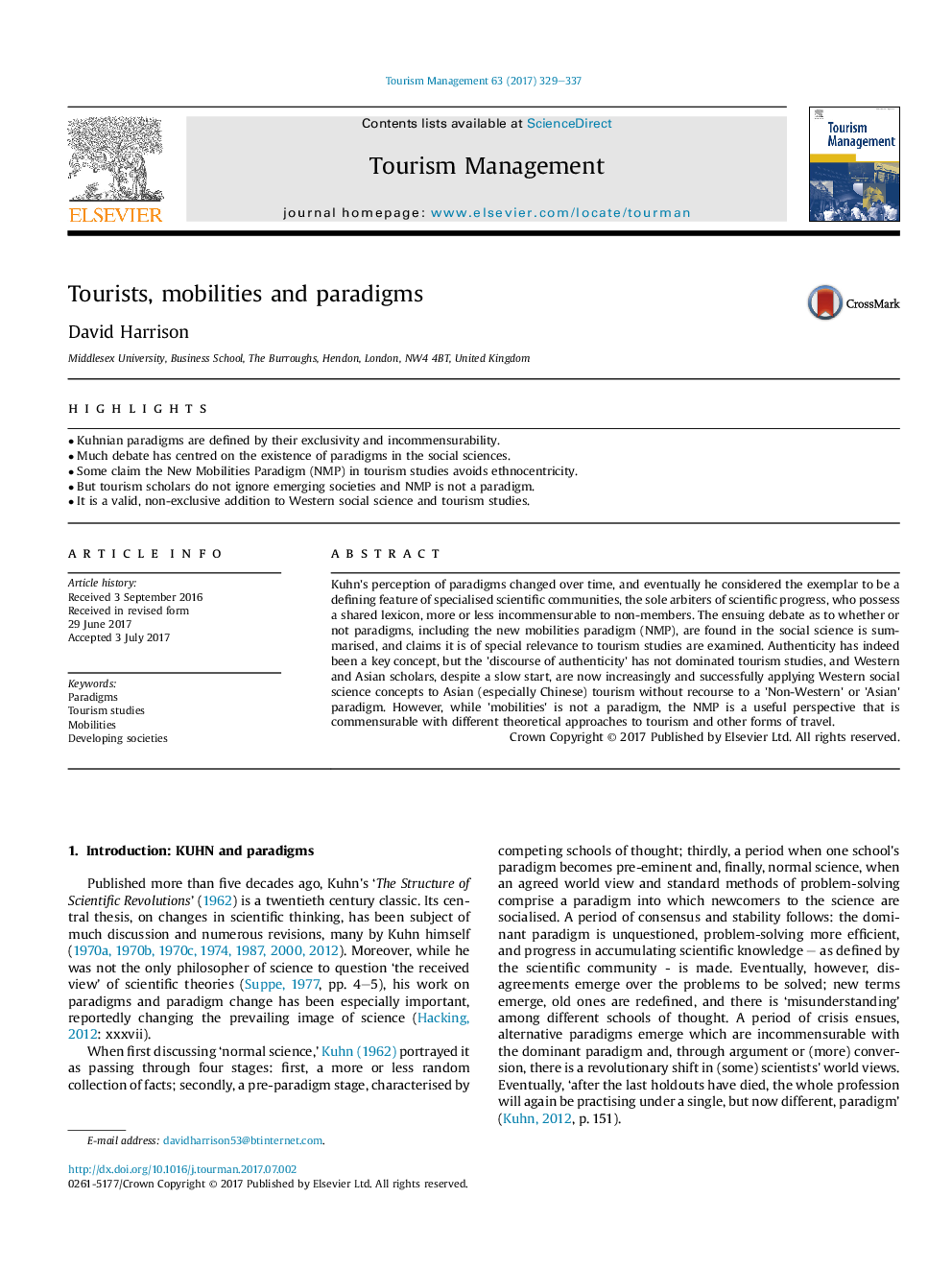| Article ID | Journal | Published Year | Pages | File Type |
|---|---|---|---|---|
| 5108554 | Tourism Management | 2017 | 9 Pages |
Abstract
Kuhn's perception of paradigms changed over time, and eventually he considered the exemplar to be a defining feature of specialised scientific communities, the sole arbiters of scientific progress, who possess a shared lexicon, more or less incommensurable to non-members. The ensuing debate as to whether or not paradigms, including the new mobilities paradigm (NMP), are found in the social science is summarised, and claims it is of special relevance to tourism studies are examined. Authenticity has indeed been a key concept, but the 'discourse of authenticity' has not dominated tourism studies, and Western and Asian scholars, despite a slow start, are now increasingly and successfully applying Western social science concepts to Asian (especially Chinese) tourism without recourse to a 'Non-Western' or 'Asian' paradigm. However, while 'mobilities' is not a paradigm, the NMP is a useful perspective that is commensurable with different theoretical approaches to tourism and other forms of travel.
Keywords
Related Topics
Social Sciences and Humanities
Business, Management and Accounting
Strategy and Management
Authors
David Harrison,
